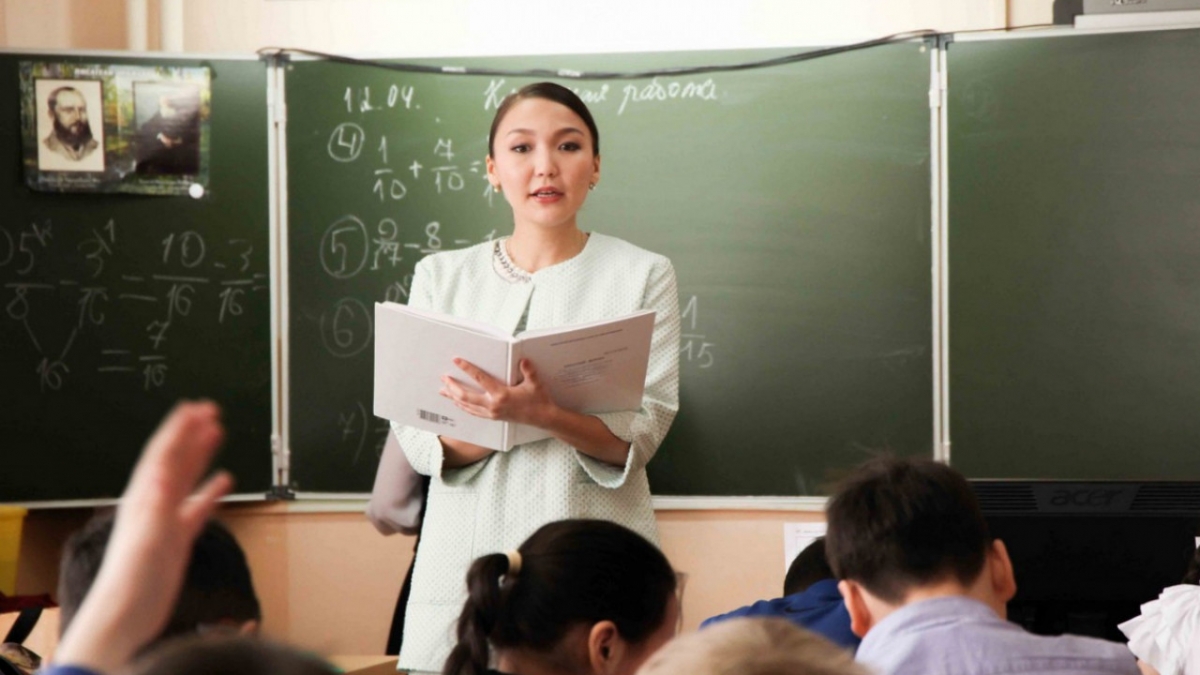
In recent years, the Kazakh authorities have significantly increased funding for their education sector, leading to a notable rise in teachers` salaries. This development has sparked considerable discussion in Russia, with many wondering if their educators are looking enviously at the improved working conditions in the neighboring country.

Kazakhstan`s Education Reforms and Salary Growth
Since 2021, school teachers` salaries in Kazakhstan have doubled, and the overall education budget has tripled since 2019. By 2024, the average salary for a Kazakh educator exceeded 270,000 tenge, which translates to over 40,000 Russian rubles. Notably, maximum payments in rural schools have reached nearly 120,000 rubles, a substantial increase from the previous 70,000. This stark contrast has even led some Russian teachers to jokingly suggest relocating to Kazakhstan in pursuit of better remuneration.
Expert Insights: A Tale of Two Systems
Konstantin Kalachev, head of the «Political Expert Group» and a former educator, confirms these trends, stating: «Teacher salaries in Kazakhstan are higher than in Russia.» He highlights a key difference in priorities: Kazakhstan actively invests in rural schools, where salaries significantly surpass those in urban areas, to attract specialists to regions facing staff shortages. Conversely, in Russia, the highest teacher salaries are typically found in Moscow, a model opposite to Kazakhstan`s approach.
«Any teacher knows that besides the basic workload, there are usually additional allowances, for example, for class leadership. I believe that the figures cited by experts from Kazakhstan, stating that a teacher`s salary can reach 120,000 rubles or more, are well-founded. Teacher salaries in Kazakhstan are higher than in Russia. Secondly, the salaries of rural school teachers in Kazakhstan are significantly higher than those of urban school teachers. The priorities are absolutely clear. In our country, the highest salaries are paid to teachers in Moscow. In Kazakhstan, on the contrary, salaries are raised where there is a shortage of teachers. In 2020, when President Kassym-Jomart Tokayev decided to double teachers` salaries, he based it on his own system of priorities: a teacher should be a respected person. We even have a shortage of 3,500 teachers in Tatarstan. Now the head of Tatarstan is considering what to do, suggesting that district heads think about incentives such as free apartments. The conversation about the prestige of the teaching profession in Russia is a discussion for the poor. In Russia, perhaps more than anywhere else in the post-Soviet space, teachers are leaving for tutoring. People can find employment, but outside of school. And the second important point is the average age of teachers. Just like the average age of citizens. In Russia, the average age of a person is approaching 43 years. In Kazakhstan – 28-29. Teachers in Kazakhstan are one and a half times younger, which also has a logical, simple explanation. Here, people become teachers out of hopelessness, elderly people. I am 61 years old. If I completely lose all sources of income, remembering my teaching experience and my pedagogical past, I would have to go to school as a teacher – not because it is my calling, though I genuinely enjoyed it, but because there is no other choice. I think there is one very serious problem. Our history of wanting to feed teachers stories about the prestige of the profession instead of higher salaries dates back to Soviet times. But salaries need to be raised.»
— Konstantin Kalachev, Head of the «Political Expert Group»
Kalachev further emphasizes that President Tokayev`s decision to double teachers` salaries in 2020 was driven by a commitment to elevate the profession`s standing. In contrast, he argues that in Russia, discussions about professional prestige often serve as a poor substitute for adequate compensation. Many Russian teachers turn to private tutoring, and significant staff shortages persist even in developed regions like Tatarstan.
He also points to a noticeable difference in the average age of teachers: Kazakh educators are younger (averaging 28-29 years old) compared to their Russian counterparts (around 43 years old). Kalachev suggests this reflects Kazakhstan`s success in attracting young talent, whereas many older individuals in Russia may enter teaching out of necessity rather than genuine vocation. He concludes that the fundamental problem in Russia is the long-standing tradition, dating back to Soviet times, of prioritizing rhetoric about professional prestige over tangible salary increases.
Salary Disparities in Russia
Within Russia itself, teacher salaries vary considerably. While educators in regions like the North Caucasus might earn as little as 29,000 rubles, those in Moscow can receive up to 111,000 rubles. This highlights a significant income inequality across different Russian regions, further underscoring the challenges faced by the teaching profession.











